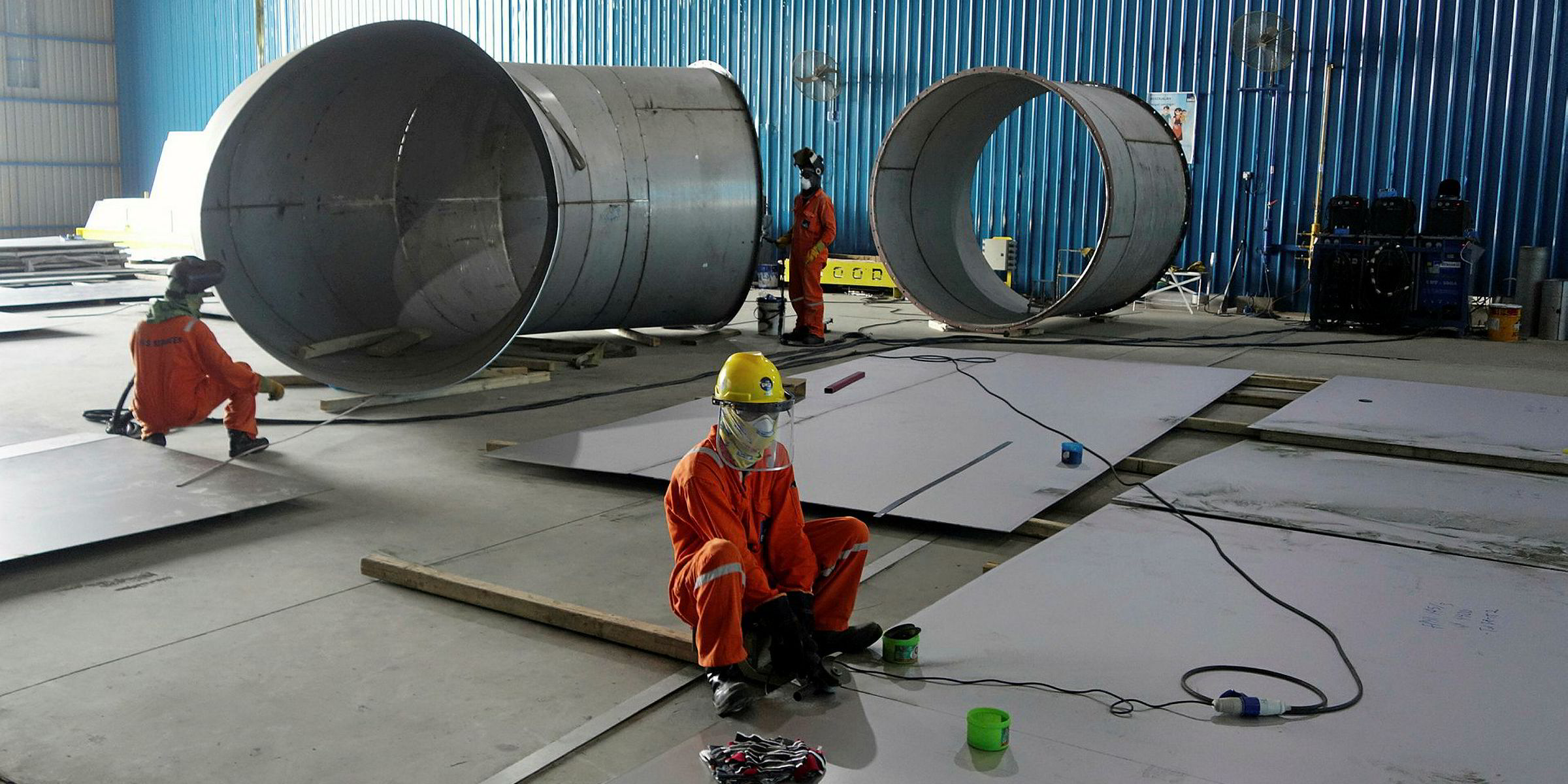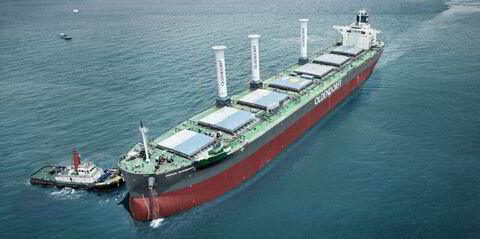While scrubbers may not be a long-term solution to shipping's fuel dilemma, its adopters will reap rich rewards if the premiums on IMO 2020-compliant fuels to high-sulphur fuel oil (HSFO) stay wide, according to industry experts.
With less than a month to go before new bunker rules come into force, the exhaust gas cleaning technology has emerged as a hot topic at industry forums.
Opponents of scrubbers have cited their questionable environmental benefits as well as regulatory and investment uncertainties, suggesting the technology will struggle to increase its uptake in the coming years.
In November, Malaysia became the latest country to ban the use of open-loop scrubbers in its waters, following Singapore, Fujairah and other jurisdictions.
Open-loop scrubbers are the most popular type among shipowners due to their low costs, but environmentalists have argued their discharge water could be harmful to the marine environment.
Conceding that there is no definitive scientific proof that open-loop scrubbers are hazardous, Adrian Tolson, senior partner at strategic advisory outfit 20|20 Marine Energy, said the perception is that “if you wouldn't put it into the atmosphere, putting [it] into the waters is a problem.”
“I think it [the open-loop ban] will discourage long-term investment. This is a four or five-year solution at most.”
Refinitiv’s lead shipping analyst Amrit Singh said the outlook for scrubbers is clouded by the IMO’s efforts to usher in decarbonisation rules by 2023 to reduce greenhouse gas emissions for the coming decades.
Many industry players have expected that slow steaming would be required to meet the IMO’s decarbonisation targets, yet scrubber-installed vessels would need to run at full speed to maximise potential returns.
“This [scrubber technology] is a short term-based solution,“ Singh said.
As oil refineries globally continue to invest in upgrading units and adjust yields of petroleum products, output of 0.5%-sulphur fuels is expected increase in the coming years.
This will make scrubber technology irrelevant as shipowners switch to compliant fuels rather than face the uncertainties of investing in scrubbers, according to consultancy Shipping Strategy managing director Mark Williams.
“It’s too many unknowns,” he said.
Financial incentives
Still, other observers have suggested the financial benefits of scrubbers may lead to more sales.
Based on the IMO 2020 rules, vessels will need to switch from HSFO to 0.5%-sulphur fuels from January, unless they are installed with scrubbers.
If the premiums of 0.5%-sulphur fuels to HSFO can stay between $200 per tonne and $300 per tonne, the payback period for most shipowners with scrubber-fitted tonnage would be less than two years, according to industry estimates.
Based on Ship & Bunker’s assessments of global average prices, the premium of low-sulphur fuel oil to HSFO was about $238 per tonne as of Monday, and that of marine gasoil was $316 per tonne.
International Bunker Industry Association director Unni Einemo said the uptake of scrubbers may increase if the premiums remain high.
“The whole point for them [scrubber investors] is to make cash on that differential,” Einemo said.
DHT co-chief executive Svein Moxnes Harfjeld, whose company has installed scrubbers on 16 of its 27 VLCCs, said he would rather focus on the financial benefits of scrubbers than the environmental debates.
“We are neither for nor against scrubbers. It's just an economic opportunity,” he said.






